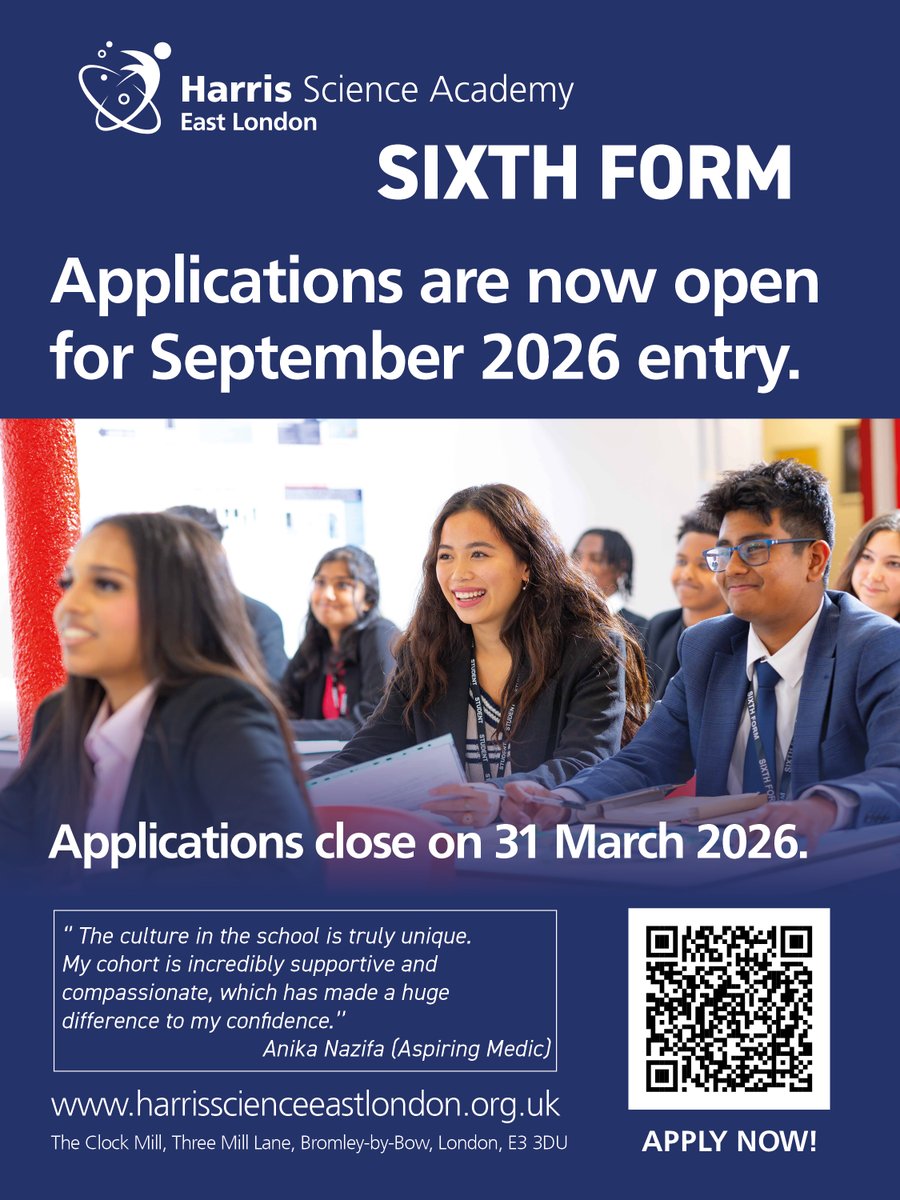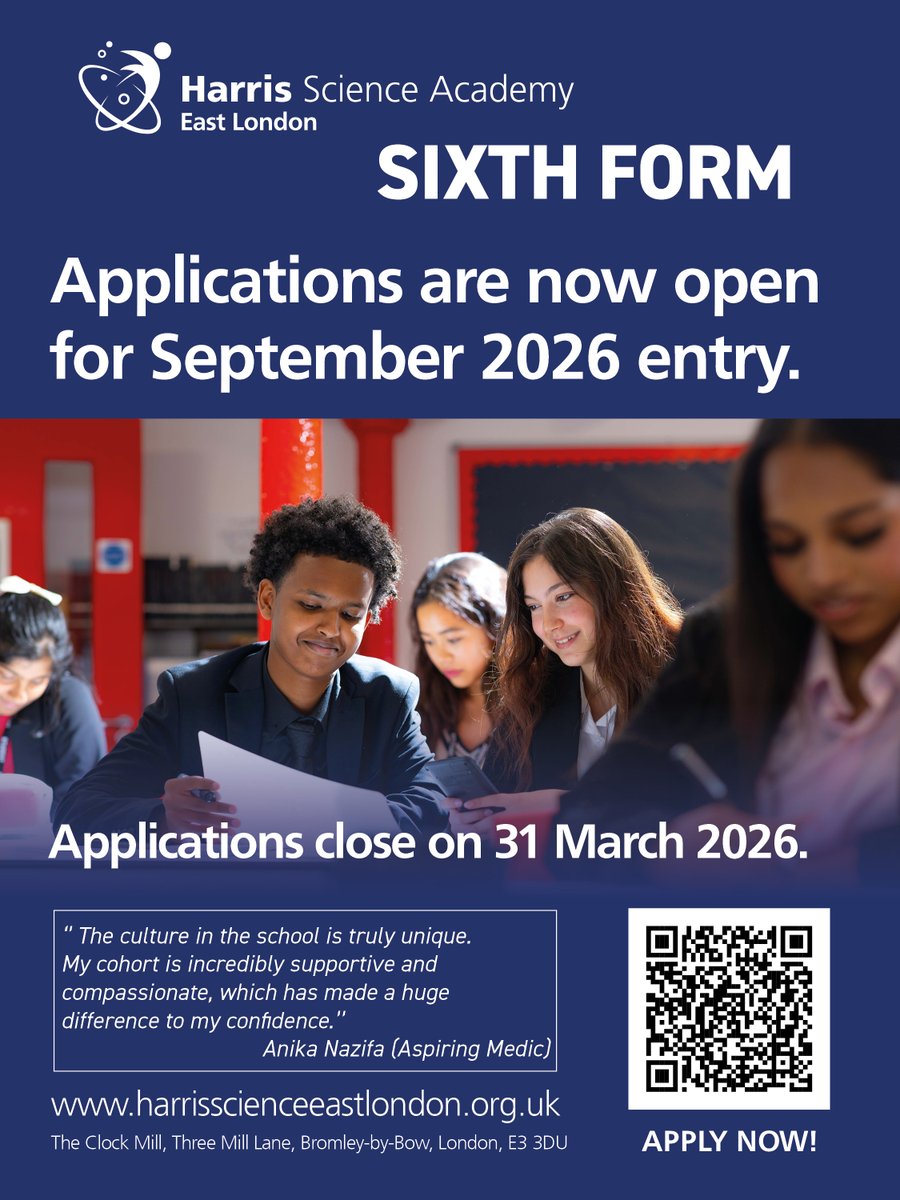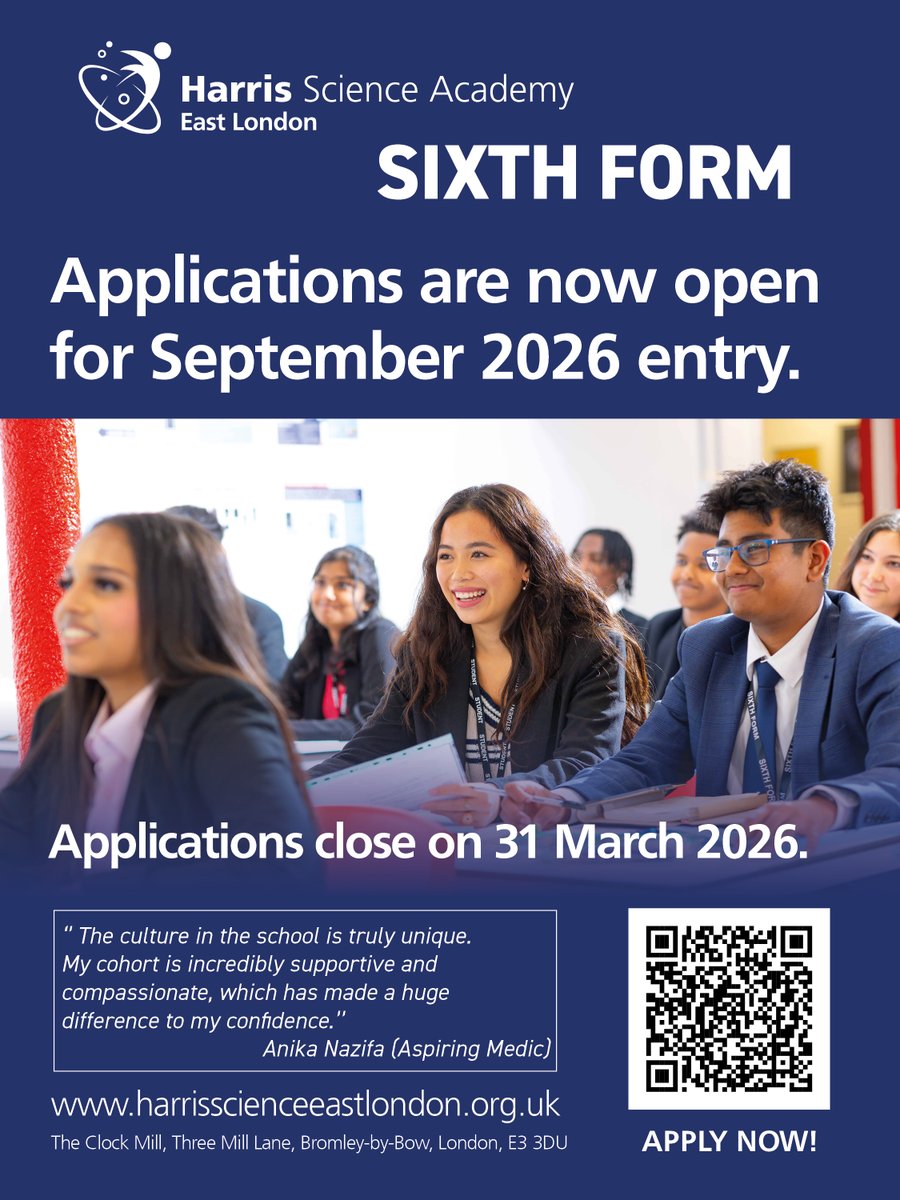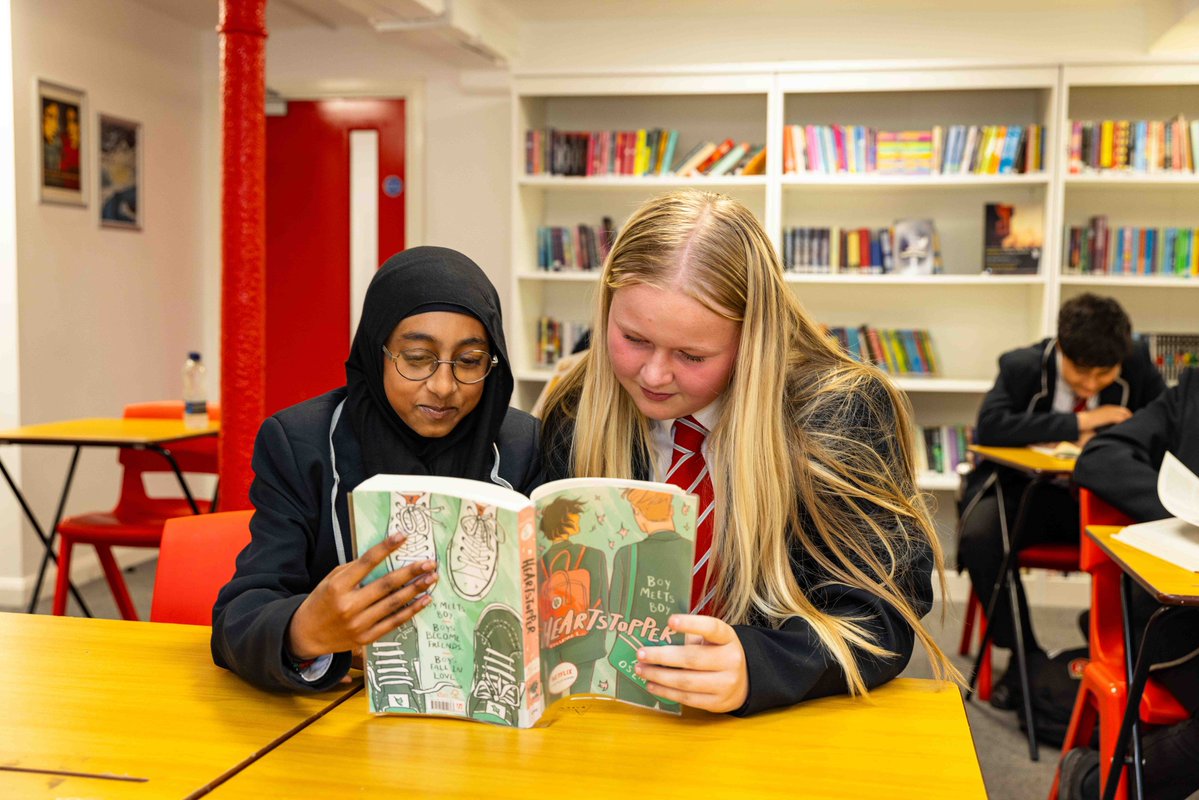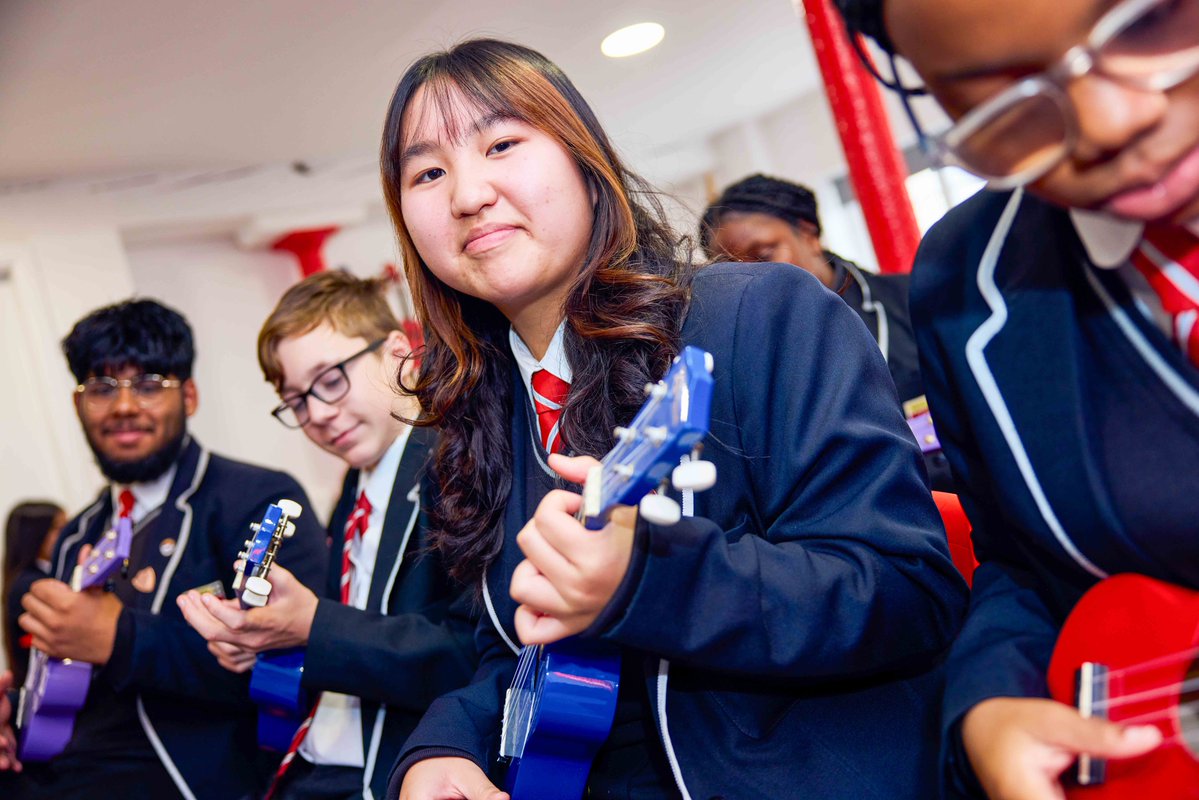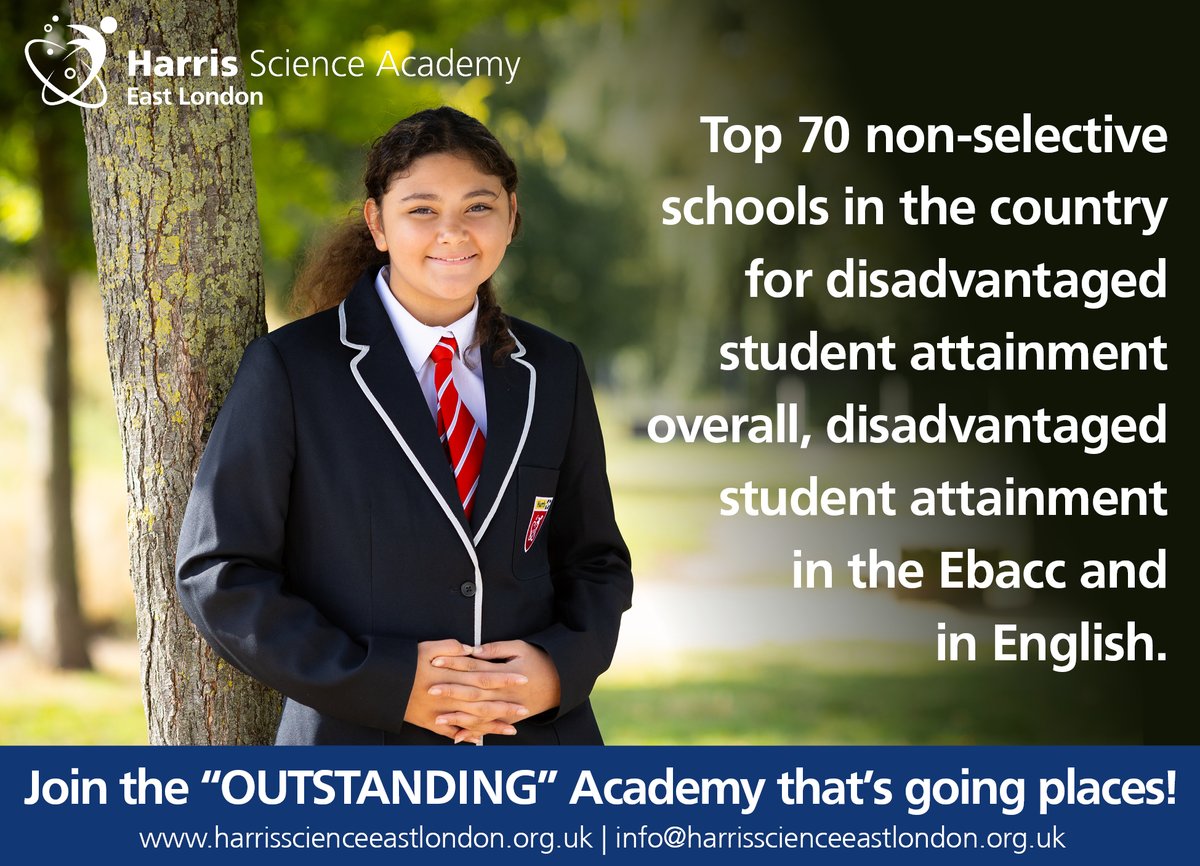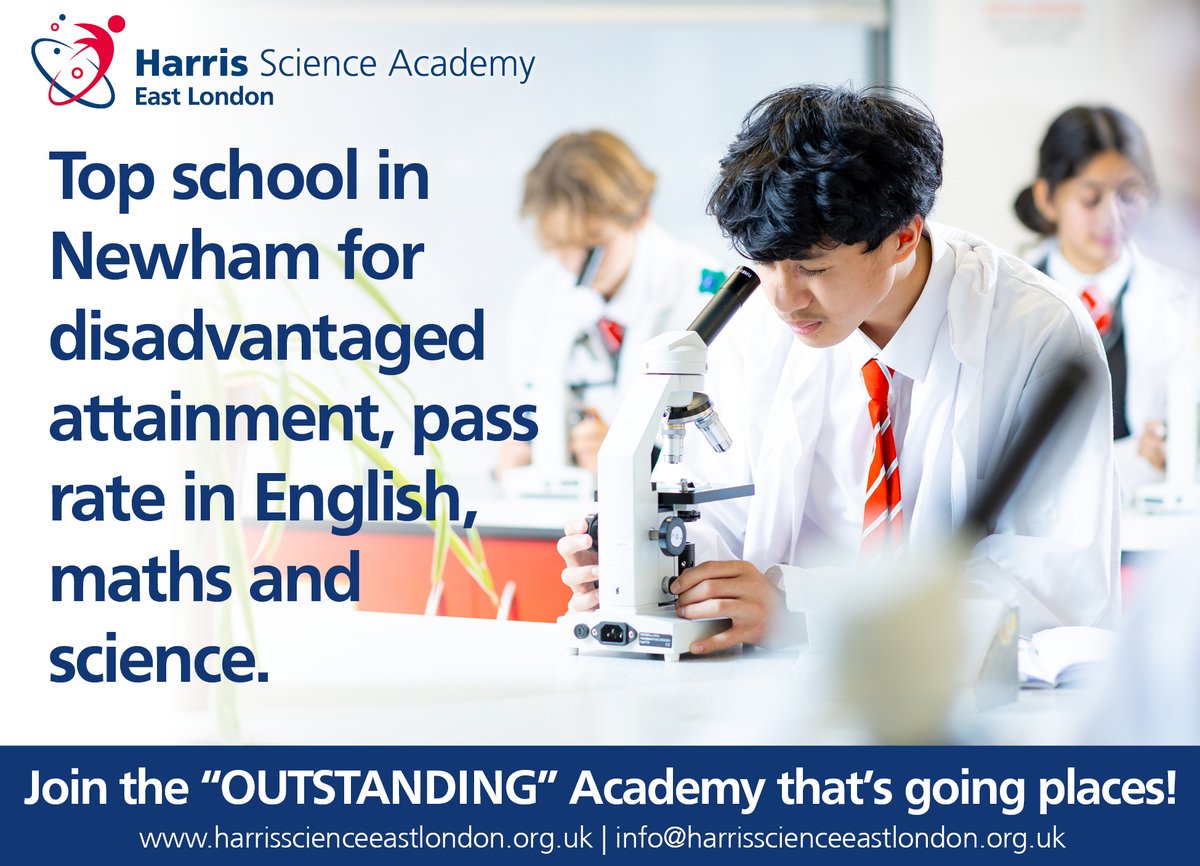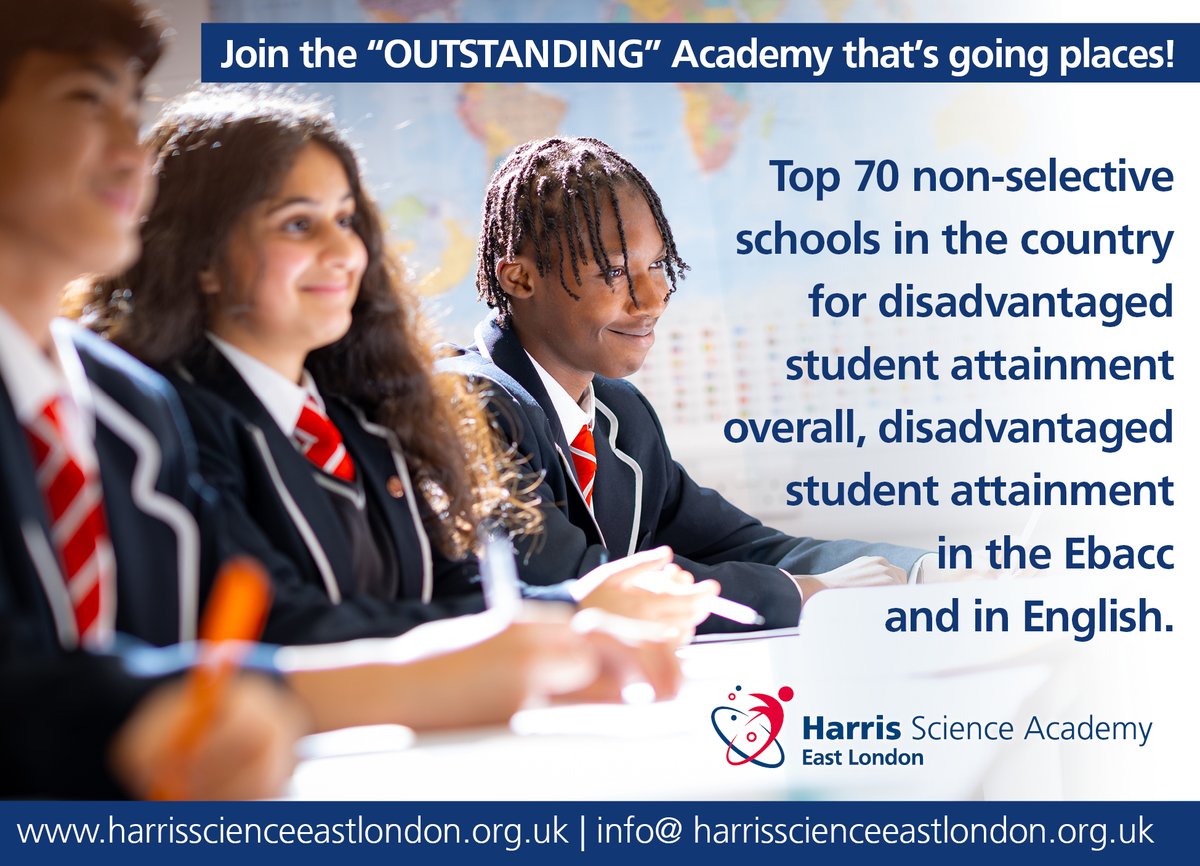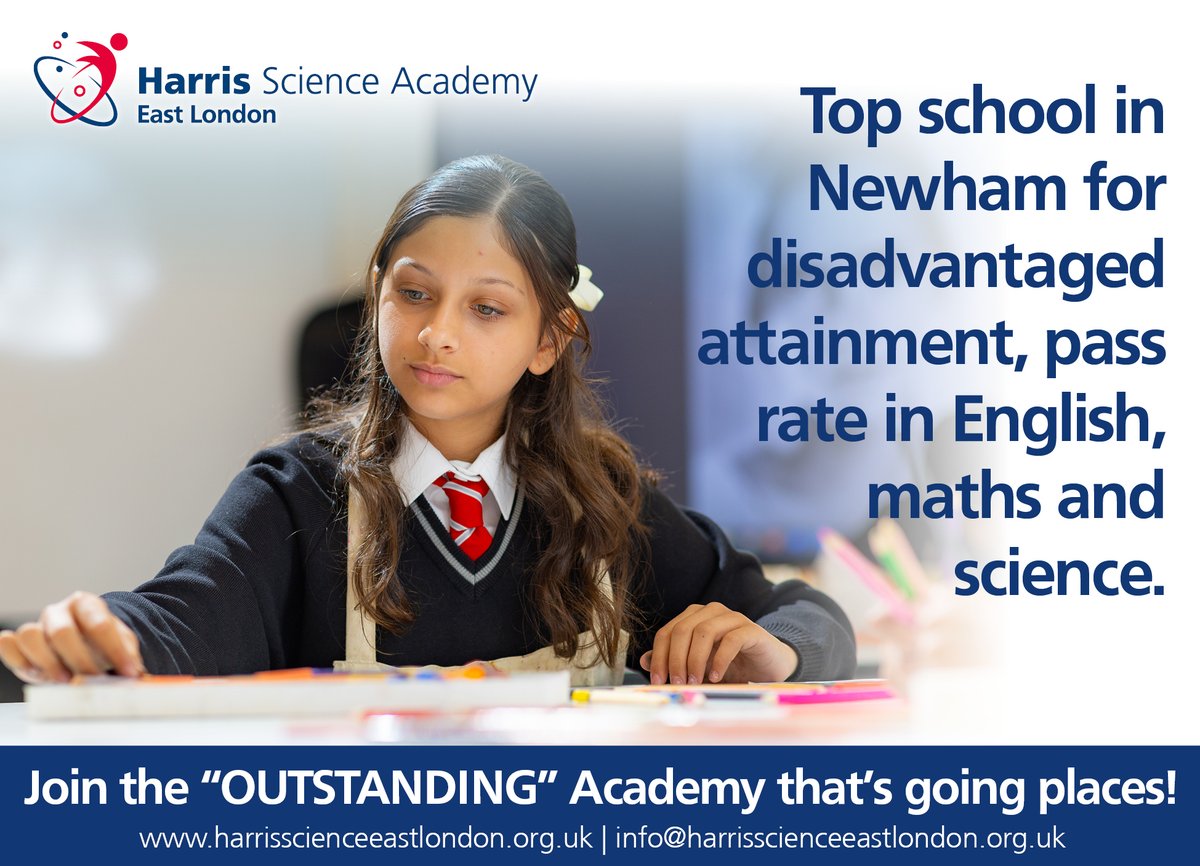Curriculum overview
The school has developed a highly ambitious curriculum... pupils learn the curriculum extremely well. Ofsted, June 2025
Curriculum Intent:
The HSAEL curriculum aims to enact our mission that every student will be a leader in their chosen field, with many choosing to be leaders of STEM. It is through our well taught, academic curriculum that we will ensure that every student will leave HSAEL with the academic currency to gain entry to elite universities and professional careers.
We offer a rigorous and traditional curriculum, rooted in academia and building education.
The intent of the HSAEL curriculum is to embody our values:
Context:
KS3 Curriculum Allocation
| Subject | Number of lessons per fortnight |
| English | 5 |
| Maths | 5 |
| Science | 4 |
| French | 3 |
| History | 2 |
| Geography | 2 |
| Religious Studies | 1 |
| Classics | 1 |
| Computer Science | 1 |
| Music | 1 |
| Art | 1 |
| Design and Technology | 1 |
| PE | 2 |
| Leadership Development (PSHE) | 1 |
KS4 Curriculum Allocation + EBacc
At HSAEL, students start their GCSE in Year 10. This curriculum is ambitious, rigorous, and broad and balanced. Students will take between 8 and 10 GCSEs, which is higher than the national average of 8. There are two categories of GCSE: core and optional. Around 90% of our cohort each year are entered for the academically rigorous EBacc qualification.
Core Subjects
| Subject | Number of lessons per week |
| English Language and Literature (2 x GCSEs) | 6 |
| Maths | 5 |
| Combined Science (2 x GCSEs) | 5 |
| PE | 1 |
| Leadership Development | 1 |
| Religious Studies | 3 |
| Pathway A (85% of students) | Pathway B (15% of students) |
| German (5 lessons per fortnight) | GCSE Citizenship (10 lessons per fortnight |
| History or Geography (5 lessons per fortnight) | 1 Specialism (6 lessons per fortnight) |
| 1 Specialism (6 lessons per week) |
KS4 Options
| Subject | Lessons per fortnight | GCSEs Gained |
| French | 5 | 1 |
| Latin | 5 | 1 |
| Computer Science | 5 | 1 |
| History | 5 | 1 |
| Geography | 5 | 1 |
| Classical Civilisation | 5 | 1 |
| Religious Studies | 5 | 1 |
| Citizenship | 10 | 1 |
| GCSE Physical Education | 6 | 1 |
| Art, Crafts and Design | 5 | 1 |
| Music | 5 | 1 |
Curriculum Planning
Adapting the curriculum for students with additional needs:
At HSAEL, we adapt our curriculum to ensure that there is no discrimination against pupils because of their sex, race, disability, religion or belief or sexual orientation as is outlined by the Equality Act 2010. It is our firm belief that every student has the right to an education that is supportive of all needs, and we ensure our provision meets the needs and regulations outlines in the Special Educational Needs and Disabilities Regulations 2014.
Stretching our more able students through the curriculum:
HSAEL approach to setting:
At the beginning of each new term, changes may be made to class groupings to reflect the progress that students have made and considering other factors.
At the heart of our model for independent practice, is the pathway model which allows for differentiated learning. Students will be placed on a pathway using their KS2 data, baseline tests and their progress over time. Students will be allocated to either Alpha, Beta or Gamma pathway. Student progress across key stages may result in moving up a pathway.
When researching strict setting, the evidence is clear: the majority of students do not perform better when they are in a group set by ability; however, some form of streaming does allow for rapid progress. At HSAEL, we strike a balance in our setting to allow for broadly mixed ability, withing a small range. This means that there are levels of challenge, as well as support, suitable for each specific class. A change of group does not define their progress per se, but that their teachers may find a change of surroundings more fruitful for the student’s success.
Research underpinning the HSAEL approach to curriculum
|
Research |
Impact on the curriculum |
|
D Lemov, Teach Like a Champion, 2021 |
Teachers should insist on 100% cognitive engagement by 100% of students. Classrooms are characterised by a strong culture of growth and feedback, where no student opts out. The format of lessons are standardised to reduce extraneous cognitive load. Routines and systems help to accelerate learning. Joyful routines create a climate where students enjoy learning. |
|
DI Willingham, Why don’t students like school?, 2009 |
Knowledge sits at the root of critical thinking. Recall as the route to retention. |
|
D Christodolou, Making Good Progress: The future of assessment for learning, 2016 R Coe, C Aloisi, S Higgins, L Major, What makes great teaching: review of the underpinning research, 2014
|
The curriculum as a model for progression. Formative assessment as a tool to improve the quality of instruction in the classroom. Pedagogical knowledge (specification mastery) is as important as general subject knowledge in accelerating scholar progress. |
|
B Rosenshine, Principles of Instruction, 2021 |
Daily review of important prior learning. Exposition broken into clear, metacognitive steps. Deliberate practice as the most direct route to mastery. |
|
R Ashbee, Curriculum: Theory, Culture and Subject Specialism, 2021 |
Mapping knowledge across subject specialisms to create a well-sequenced progression map. Codifying the curriculum and specific documents for curriculum thinking and execution. Provide cognitive foundations for curriculum thinking, such as knowledge, sequencing, interleaving, and retrieval. |
|
P Kirschner & C Hendrick, How Learning Happens: seminal works in educational psychology and what they mean in practice, 2020. |
Novice learners are not the same as experts, and so should not be taught as such. Tasks should be practised in small parts, before being built up to more complex tasks. Prior knowledge is a key indicator of future learning. Intelligence is not fixed, but thinking you are intelligent makes you so.
|
|
Study of high performing schools in similar contexts |
High quality explanations where students participate lead to rapid progress. Clearly sequenced curriculum programmes, with frequent opportunities for knowledge recall and application of knowledge in controlled practice are those that lead to the highest outcomes. |
Policies
See Teaching & Learning in our Policies section for all related policies.
- Encouraging growth – ensuring students receive feedback regularly and building resilience.
- Instilling a sense of responsibility – through independence and making decisions that will improve their own academic experience.
- Promoting ambition – rigorous curriculum that enables students to achieve the highest grades and access to leadership opportunities and elite careers and universities.
- Fostering compassion – placing knowledge in the context of the wider world and creating an understanding of different perspectives.
- Cultivating excellence – creating consistent habits in gaining knowledge and a pursuit of the mastery of every subject.
- Situated in Newham, one of the most deprived boroughs in London, the school serves some of the most deprived postcodes in both Newham and Tower Hamlets, according to the 2019 Index of Multiple Deprivation. It is through our well-taught and academic curriculum, that we will work to bring our students ever possible advantage, so that they can gain entry to any elite career or university of their choosing.
- Every department is passionate about their subject and wants to create leaders in their subject areas. With this in mind, when planning the curriculum, Subject Leads begin with an understanding of the knowledge that students will be required to have in order to access the most elite universities in the U.K. regardless of their starting point. It is the greatest honour to have students choose your subject at university level and become a leader in that area.
- Departments complete medium-term plans so that every student has access to the exact same rigorous lessons and curriculum.
- Our lesson structure ensures students become independent and confident in their own learning. Every lesson is made up of:
- The Read Now: Knowledge in context, with the big idea of the lesson considered; or perhaps a worked example or model, so students know what they need to do to achieve.
- Daily Review – Questions that rely on knowledge recall and prior learning. This will connect their current lesson to previous lessons. This also serves to support embedding knowledge in their long-term memory.
- Exposition – Metacognitive steps which are planned by the teacher, using their expertise to ensure everyone can move on to the deliberate practice.
- Deliberate practice – time spent applying student’s prior knowledge as well as new knowledge form the exposition into their work.
- Our mission is for every child to become a leader in their chosen field, with many choosing to be leaders in STEM. This means that every child will access the same curriculum, and every child will meet the same high expectations. This means that we do not narrow our curriculum, nor do we lower expectations; whilst some students will need more support than others, but the HSAEL maintains their ambitions for every student.
- Students with additional needs are not withdrawn from subjects to receive learning support, but are given support from the SEND department, as well as teachers in each subject.
- Classes with high numbers of students with additional needs are taught by experienced teachers, and these classes are often smaller in size.
- Seating plans ensure that students who need more support are sat closest to the teacher, thus are able to receive assistance first in class.
- Home learning provides students with the opportunities to revise and recall important subject content, which will enable students to know and remember more.
- Targeted interventions support students to close gaps and access the full curriculum.
- As part of the Harris Federation, our most able students are placed in the ‘Harris Experience’ programme which ‘aims to broaden the cultural and academic experiences of some of our most able secondary students in the Harris Federation, to give them outstanding preparation for some of the country’s top university destinations, including Oxford and Cambridge.’ Students in this programme are given numerous opportunities ranging from auctioneering at Christie’s to lectures at Oxford University.
- Core knowledge acquisition through independent learning means students can reach beyond the base knowledge and directly apply further knowledge within their lessons.
- Students have the option to take Triple Science as part of their GCSE curriculum.
- Enrichment opportunities that allow for independent and critical thinking: student leadership, debating, robotics.
